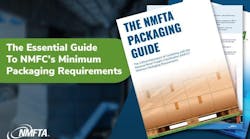It was the best of times, it was the worst of times … or should I say it was the best of studies, it was the worst of studies. Since this is the trucking industry and not the Charles Dickens classic A Tale of Two Cities, I write this column at the tail end of a week where the results of two studies regarding CSA have been released, and it appears that they seem to be saying two different things about the usefulness of the CSA program. The studies, one conducted by the Government Accountability Office (GAO) and one by the Volpe Center, seem to reflect the opposite ends of a CSA spectrum that has been criticized and applauded since its very inception. One study reports the effectiveness of CSA while the other cites its shortcomings.
Okay, I only have about 600 words to type in this space, so clearly this is not a medium to explain the pros and cons of each study, yet it is a medium to certainly wonder about the timeliness and odd coincidence that each study was released to the public in the same week. Speaking from my point of view, just when I finally had finished digesting the GAO study and the faults of CSA that it reported on, Volpe releases its study as ammunition that appears to combat the points made by GAO and claim CSA’s effectiveness in identifying trucking companies for a targeted enforcement.
To be fair, I have often written in this very column that CSA in theory—and since its release—has done many good things for the trucking industry. This column doesn’t point out the program’s shortcomings or hail its strengths, but it will recognize what CSA has done and should do in the future regardless of how many studies are done on it. Throughout my many years in truck safety, I have seen, heard and even spoken about improving the safety culture in a truck fleet and witnessed many a carrier institute programs in their fleet that would try to do exactly that. CSA, in a nutshell, has done exactly that.
Ask a carrier safety director if CSA has undoubtedly changed the way safety is practiced in the industry and they will agree that it certainly has. CSA has made everyone in a fleet a “safety” person, thus instituting a culture that amongst fleets is compliance-driven. Maintenance, operations and recruiting have all hopped on the CSA bandwagon and won’t be jumping off anytime soon. The bandwagon has certainly benefitted from the awareness that this much maligned program brings.
While CSA has admirably performed the task of creating a safety culture amongst the carriers, however, it still has room for major improvements and should never be deemed effective until those improvements are made. I once wrote about the inaccurate picture that CSA paints because of the inaccurate data it uses. Until CSA addresses issues such as crash accountability, its scores will almost always be wrong, allowing third parties to form false judgments. Third parties can be shippers that decide which carrier will haul their goods, news reporters, or even attorneys citing CSA data. In others words, if third parties are reviewing data that is not accurate, they will inevitably come to conclusions that are not accurate as well.
In closing, GAO, Volpe and anyone else can study CSA as much as they want, but until the data that goes into CSA is accurate, the study must conclude that CSA is inaccurate as well.
David Heller, CDS, is director of safety and policy for the Truckload Carriers Assn. He is responsible for interpreting and communicating industry-related regulations and legislation to the membership of TCA. Send comments to [email protected].


